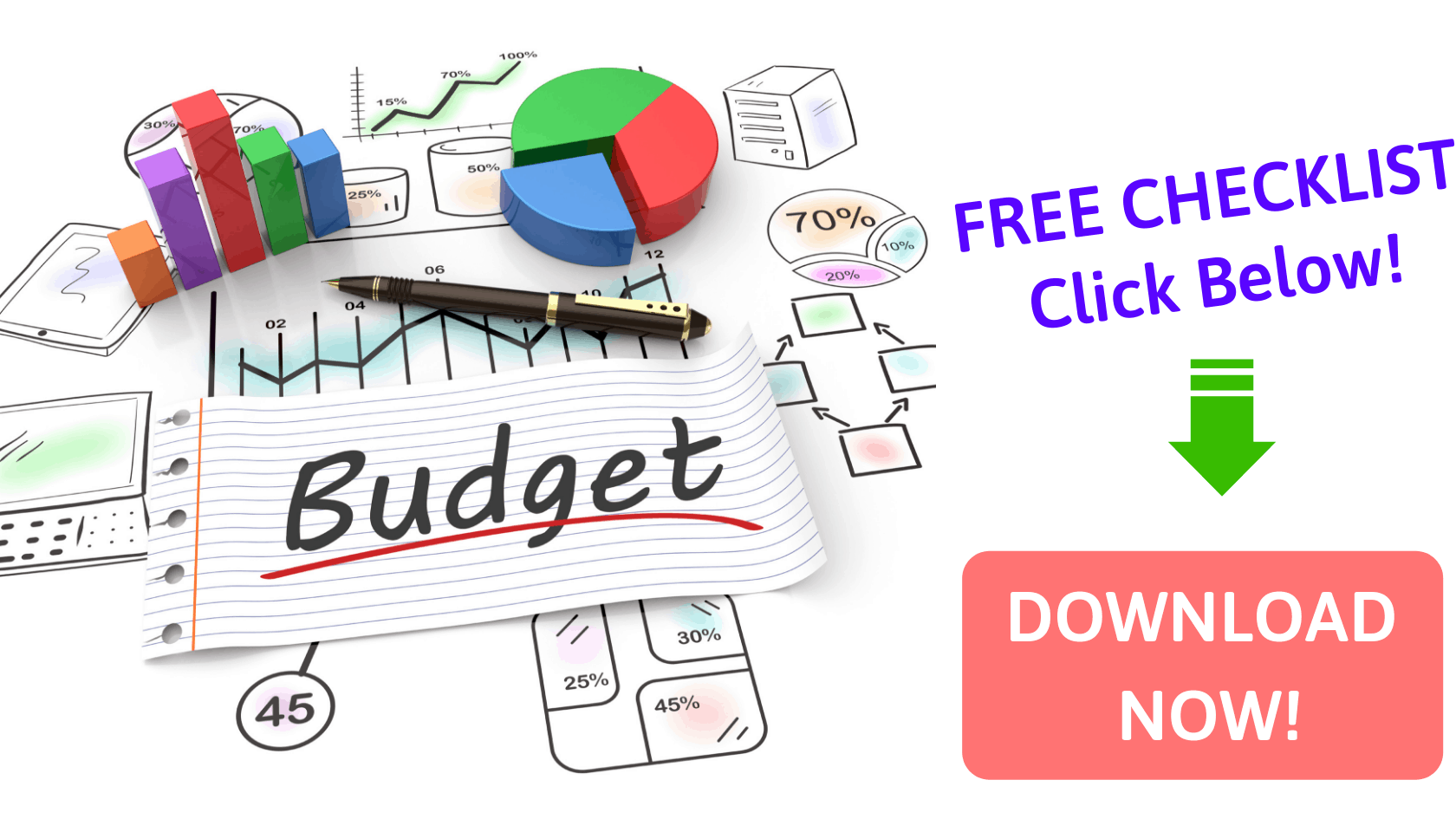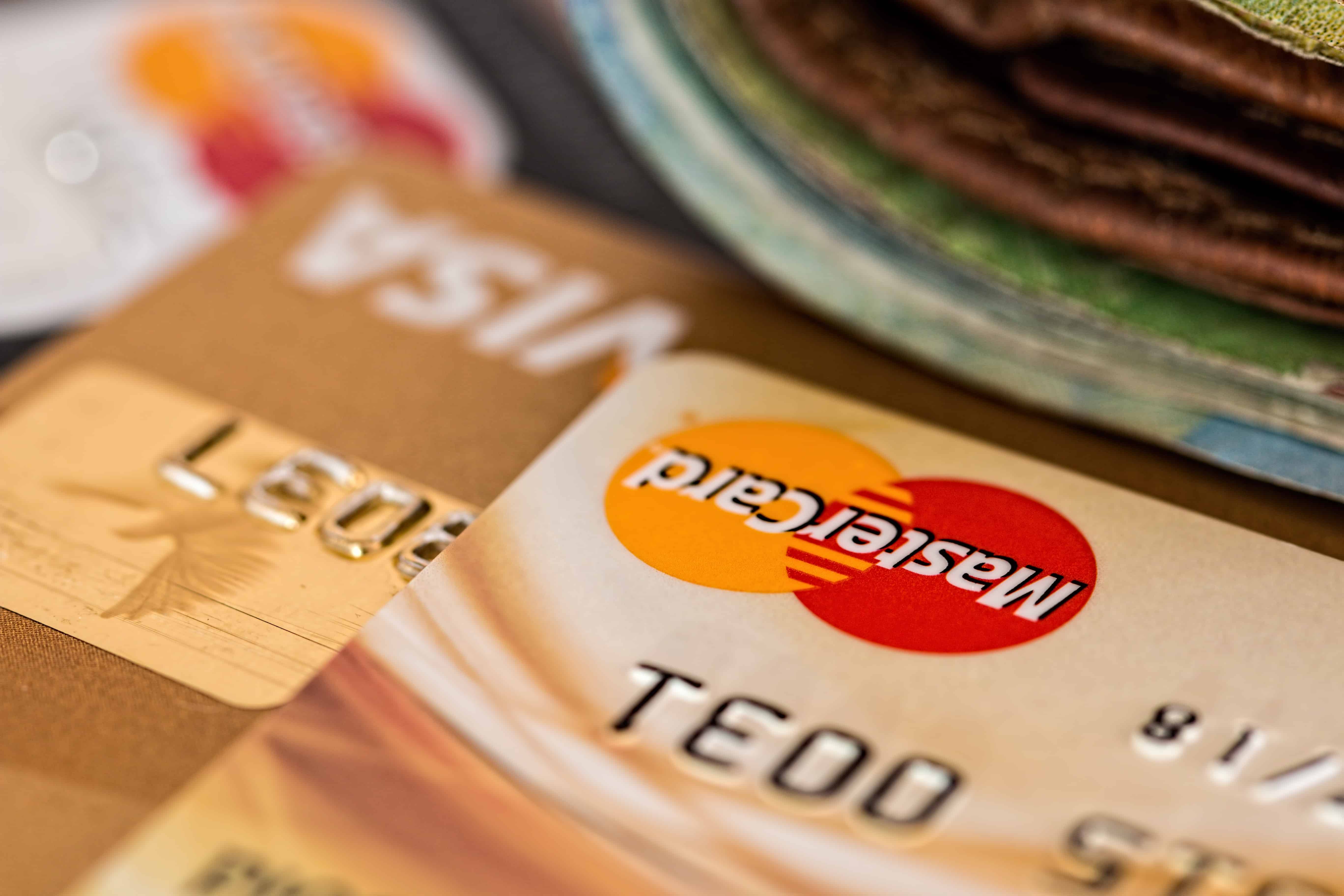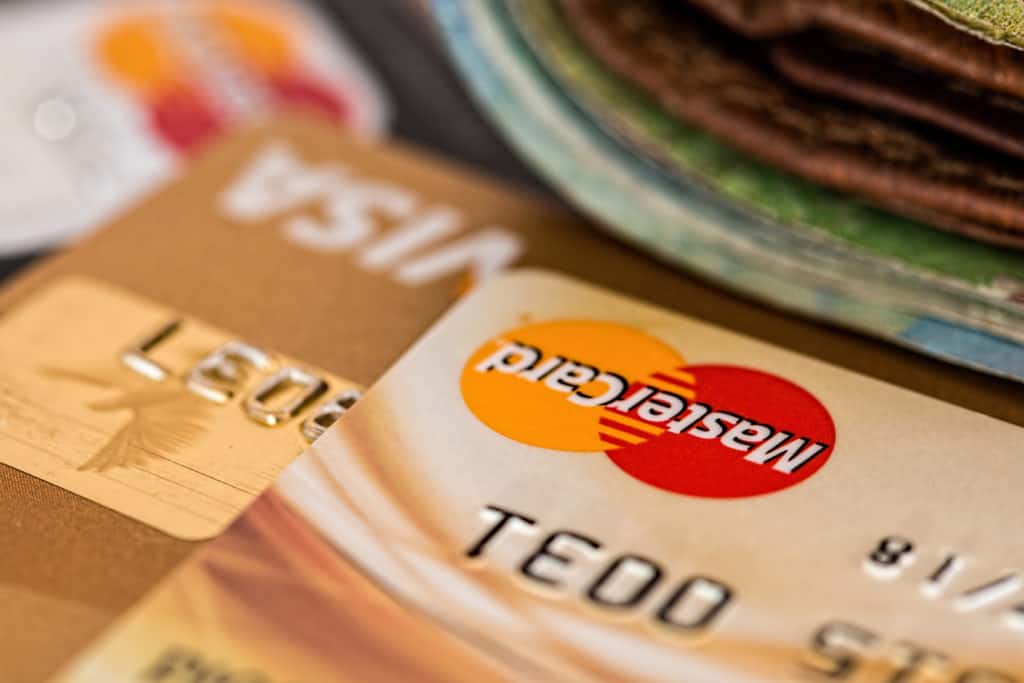This article may contain affiliate links. I might earn a small commission if you make any purchases through my links and it comes at NO cost to you. For more information, please read my Disclaimer page.
It took me a while to think about how to introduce this topic with an analogy that will drive the point home from the onset. After all, using a credit card wisely and responsibly is vital for your finances.
So, here’s what I came up with:
- You lease a car but don’t pay the monthly installment
- To own a home is fantastic but you don’t pay the monthly mortgage
- You earn income but don’t pay your taxes
As you know, you can get in trouble if you pull any or all of the above stunts!
Similarly, if you use a credit card and do not pay off the monthly balance, you guessed it – You’re in TROUBLE!
Relax – don’t sweat!
I’m here to assist, and the reason for this post is to help you understand the nuances, benefits, and drawbacks of using a credit card.
First, we will start with some basic questions about a credit card. Next, we will dive into the benefits of using a credit card, and finally, the drawbacks of using one.
So, let’s get started!
What is a Credit Card?
One of the easiest ways to define is that it is a card that you use to borrow money for a set amount of time, usually 30 days.
You can use this card to make everyday purchases from groceries, food, coffee, gas, shopping to big-ticket items like furniture, airline tickets, and even an initial deposit for a new car.
It is a plastic card with an inbuilt chip for security purposes. On the card, you’ll see your name, card number, expiry date, and either 3 digits or 4 digits unique code called CVV (card verification value)
What is the difference between a credit card and a debit card?
The primary difference between a credit card and a debit card – a debit card pays from your checking account while a credit card allows you to borrow money.
Debit Card = You are using your money from your checking account (Bank of America, Chase, JP Morgan, Santander, Citizens, etc.)
Credit Card = You are borrowing money from the credit card issuing company (Visa, Mastercard, American Express, Discover, etc.)
When you use your debit card, the biggest advantage is the convenience of NOT carrying cash but instead paying a plastic card.
On the flip side, when you use a credit card, you are borrowing money for a grace period (25-30 days), get to earn rewards/points AND build your credit history.

3) What does a minimum payment on a credit card mean?
A credit card issuing company (Visa, Mastercard, etc.) will set a minimum payment you need to make toward your monthly balance.
This amount is the larger of:
- Fixed $ amount OR
- A percentage (%) of the balance
A minimum payment is like a double-edged sword, so you have to be very careful.
When you make a minimum payment, you are kicking the can down the road and borrowing more time to pay the remaining balance. You are charged interest on the remainder to the balance (after the first 25-30 days)
The interest rates are incredibly high – usually 20% or above for most credit cards.
The smartest way to use a credit card is to pay off your monthly balance in full instead of paying just the minimum due.
4) How to use a credit card for the first time?
Often, getting started and figuring out is the tricky part. Life gets easier once you get the hang of stuff.
Similarly, using a credit card for the first time can be challenging. But, it is easy to use a credit card wisely.
Here’s a quick checklist of things to keep in mind:
- Make sure you are not spending above and beyond than you would normally (if you were using cash or a debit card)
- Track your spending and flag all expenses out of the ordinary
- Rationalize those one-time expenses and ensure you can afford them
- Avoid making the minimum payment and PUSH yourself to pay in FULL
- Save as much as possible so that you have enough to pay the monthly balance
- Track your credit score every month – you will see your score increase or decrease every month based on the credit card use and payments
- Protect your account against fraud – most credit card companies offer this benefit so check with them
I want to re-emphasize that paying off your monthly balance in FULL is imperative.
And, you should put yourself in a position to succeed in making the monthly payments – by SAVING regularly and having enough cushion.
If you have not yet checked out my article on how to save money, please do so. I share 25+ creative ways to save money.

5) What is a good credit utilization ratio?
It is a good idea to know how much credit should you be using compared to what is available through a credit line.
Why?
The reason is, your utilization will impact your credit score!
Generally, the rule of thumb is that your credit utilization should be 30% or less. This means that if you have a $1,000 total credit limit, your monthly balance should not exceed $300.
This applies to each card that you hold and also to the total across all cards.
Meaning, if you have 3 cards each with a $1,000 credit limit, you should not exceed $300 on each of them. Also, on a cumulative basis, you will have a $3,000 total credit limit ($1,000 * 3), and the total monthly balance should not exceed $900 ($300 *3)
So, you should follow the checklist in #4 religiously to avoid impacting your credit score negatively.
6) Types of credit card
There are multiple options to select from when it comes to choosing a credit card.
Below is the list of different types of credit card:
- Secured credit card: As the name suggests, these are cards that require some collateral (deposit) from the borrower. These are cards issued to folks who have poor or no credit at all.
- Unsecured credit card: These are cards without any collateral requirements. Folks with fair to excellent credit score can apply for these.
- Gas rewards credit card: With these cards, every time you pay for gas, you earn rewards that you can redeem later.
- Cashback credit card: When you make your daily purchases through these cards, you earn a percentage (generally 1%-3%) in cashback.
- Travel rewards credit card: These cards are extremely popular with folks traveling regularly for both business and personal purposes. Introductory offers sometimes range from 50,000 – 100,000 miles.

Focus on using your credit card wisely and plan your expenses. It is easy to fall in the trap of convenience, but at the end of the day, you are responsible for the payments and NO one else.
Avoid common mistakes folks make with their money. I also have an article where I discuss 11 money mistakes to avoid so please check it out.
Now that we have tried to answer some of the basic questions, I hope we can safely move on to understand the benefits and drawbacks of a credit card.
Benefits of credit card
No need to carry cash
This is one of my favorite benefits. You see, the convenience of paying for everything by just carrying one credit card is precious.
I can’t imagine carrying cash for groceries, gas, food, and other stuff.
According to a PEW Research Center survey in 2018, roughly 3 in 10 Americans said they don’t use cash at all for their purchases.
Only 18% of the survey respondents made all or almost all of their purchases using cash.
Every year, more and more folks are going cash-free, and hence, the credit card industry is getting increasingly competitive.

Swipe OR Tap
The ease of making a payment for your purchases is at the forefront of customer experience. Companies that realize this aspect of customer behavior introduce new payment methods quicker than others.
For example, once Apple pay was introduced, companies like Starbucks, Chilis, KFC, ExxonMobil, Kohls, Dominos Pizza (to name a few) began offering this payment method to its customers.
According to a research note by Loup Ventures LLC, 43% of iPhone users across the globe use Apple pay services, up from 20% in December 2017.
This highlights the importance of both convenience and security.
Build credit history
One of the most significant benefits of using a credit card is that you start building your credit history.
The longer the number of years you’ve been building your credit history, the better.
Why?
Because your credit history is a track record of your repayments of the debt you owed.
In other words, if you were to go buy a car (either take a bank loan or lease), the car company needs to know that you will be able to pay the monthly installments on time.
The best way for them to approve the loan is to run your credit score which is determined by your credit history.
Earn rewards and cash back
Another favorite of mine – you get to earn points, miles, and cash back just for using your credit card wisely.
I especially love this benefit because it helps you save money every time you use your credit card.
Isn’t that amazing?
By using a credit card, you are earning points, building your credit history, and also get to redeem those points in the form of discounts, cash back or a payment toward your monthly bill.
That to me is a win-win no matter what type of credit card you choose.
Above all, the savings can help you pay off your debt quicker. If you’d like to learn more about paying off your debt faster, check out my post on how to pay off your debt.

Drawbacks of credit card
Pay monthly balance in FULL
If you are not able to pay the monthly balance in full, you accrue interest charges. That could negatively impact your credit score and put you at a disadvantage from a payment standpoint.
When you are not able to pay the balance in full, it means either you spent more than what you could afford or you had not saved enough to cover your credit card bills.
Either way, you’re in trouble and need to figure out the best possible course of action moving forward.
Also, paying off your monthly balance and being in good standing with your credit score is key to big-ticket items like buying a car, home, rental property, etc.
Minimum payment option is deceptive
I find the minimum payment option extremely deceptive. It is a way for companies to keep their current customers, but in reality, the customers are just kicking the can down the road and avoiding the payment.
This can turn out to be disastrous for both sides.
If you recall the 2008/2009 great recession, folks went to the banks for mortgages that they could not afford. The banks issued the mortgages being aware of the risks, and when people could not make their payments, it led to the sub-prime crisis.
As a millennial, that was very painful to understand and live through.
I urge you to be cautious and equally responsible when it comes to using your credit card wisely.

Debt issues
One of the top reasons why folks advise against using a credit card is that you could easily end up with significant credit card debt.
If you are not disciplined enough to manage your spending through your credit card, you need to fix that first.
According to Lexington Law, nearly 48% of Americans make minimum payments and carry forward their balance to the next month.
This is not a good sign as it will become increasingly difficult for that 48% to pay off the debt every month.
According to Federal Reserve, of the families that spend more than they receive, 43% borrow, and use a credit card to fund the shortfall.
So, credit card debt is real and a lot of families and individuals struggle with it.
Extremely high interest rates
According to a 2019 credit donkey report, the average American pays around 16.5% interest on their credit card.
Let’s take a moment and revisit that interest rate…
You will pay a 16.5% interest rate on the remainder of the monthly balance not paid in full.
To put things in perspective, if you invest $5,000 today for 10 years at a 16.5% compound interest rate, you will receive around $23,000 after 10 years.
In my opinion, 16.5% is a ripoff, and you should avoid paying that at all costs.
If you want to use your credit card wisely, focus on spending less, saving more and paying the monthly credit card balance in full. If you do these 3 things, you’re headed in the right direction.
Summary
If you want to use credit cards to your advantage, you need to start saving more and spend less every month.
To use a credit card wisely, you also need to have the tools to put you in the driver’s seat.
Here are the key takeaways of using a credit card responsibly:
- Your credit utilization rate should be 30% or less on the total credit available
- Save more every month
- Spend less so you can pay off the FULL monthly balance on the credit card
- AVOID minimum payments
- Take full advantage of the rewards, miles, points and cashback offers from the credit card companies
- AVOID accumulating debt on your credit card
If you follow through on your action plan, save, spend less, and pay off your monthly balances in FULL, I’m sure your finances will thank you.
The BEST PART – you’re in control of your financial health!
[convertkit form=908339]
How do you use your credit card? Please share your experience, thoughts, tips, and ask away any questions in the comment section below!



Great tips for using a credit card! I think a lot of younger adults steer away from them because they don’t want to end up in debt. But used wisely, a credit card can be a helpful tool for building your credit score and establishing good financial habits.
Thanks Rebecca!
Informative read. But I’m of the notion that cash is king. There surely must be other ways of building a credit record, for instance.
Big take home is that credit cards come with a lot of responsibility and discipline
Absolutely and nothing wrong with using cash. Using credit cards to your advantage and earning points, cashback, miles, etc. comes with its share of responsibility and diligence. Thanks for your comment!
I really enjoyed reading this. Very informative and well written. I think a lot of people would find this post very helpful and would benefit from reading.
Thanks a lot Michelle!
A lot of good information. I am trying to get rid of my cards all together. You can get trapped really quickly.
Thanks Kelly!
It’s been quite a long time I stopped using credit card for the very reason of overspending and possibilities of running into debt (as discussed in the article). Thanks for writing such a comprehensive post on the correct usage of credit cards.
Thanks Shweta for the kind words!
Pingback: What Is A Good Credit Score? 5 Factors That Determine Your Credit Score
Thanks for these tips! My husband and I are currently trying to get a mortgage and we definitely learned this the hard way. Hopeful others take your advice and don’t fall into the same trap!
Thanks Shelly!
Thanks for sharing these great tips! If only I had taken your advice sooner! My husband and I are currently working on paying down our credit card ahead of buying a house; we really racked up that 18% interest-rate debt, but we’re lucky to be able to pay $1,000/month on the card—we’ll finish paying it off in less than a year! Woohoo!
Thanks Shelly! Glad to hear you are really close to the finish line on clearing your credit card debt!
Pingback: 20 Ways To Get Out Of Debt: How To Tackle Your Debt & Pay It Off Fast
Good advice. I have to admit I’ve had trouble in the past with credit cards and had to learn the hard way of the right way to use them!!
Thanks Megan!
Very good information and it is much needed especially with the young adults. Keep up the good work.
Thanks Nadia!
Some great info here, especially for people who are new to money management or have never had a credit card before.
Thanks Isabel!
I wish I had this information 20 years ago because back then, I was only paying the minimum payment amount and I was wondering why my credit card debt pretty much stayed the same for months. This is a must-read for anyone who wants to be a responsible credit card holder.
Thanks Corinne! Yeah people should try to stay away from minimum payment.
What a great overview of credit cards! Credit cards can be a great tool when used responsibly!
Thanks Robyn!
Very informative post! The review on credit cards is especially useful now as more students are receiving offers in the mail right before attending college and universities. Great post!
Thanks Shari!
This is great advice! Definitely information that our younger generation should educate themselves on before getting a credit card. Thank you!
Thanks Damaeis!
I’ve been a fan of credit card only for a long time, mostly because of the cash back rewards.
Yup that’s a great benefit Mylinh!
Great stuff! This is a must-read before getting started with cashback or reward cards. It’s far too easy to get carried away believing you’re saving money!
Thanks Nick!
Best tips ever for how to use credit cards. I wished we all new this before we adopted the buy now pay later lifestyle. Thanks for sharing.
Thanks Sabrina!
I have learned the hard way. You have to be responsible and keep your expenditures in check. After I have paid off my debt, I have shunned all offers for credit cards. I am fine with having a debit card. Only spending what I can afford.
So true Kristine. Thanks for sharing!
Pingback: 10 Debt-Free Living Tips That Will Help You Stay Away From Debt Trap
Pingback: Good Debt vs. Bad Debt: How To Determine The Difference?
Pingback: 10 Smart And Easy Ways To Invest $1000 For Financial Success